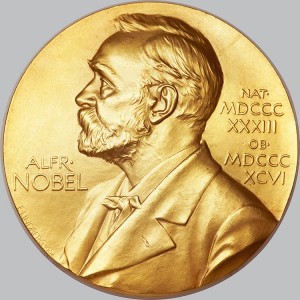Nobel Prize in Economics
October 10, 2017
Yesterday, on October 9, the Royal Swedish Academy of Sciences in Stockholm, Sweden, awarded the 2017 Nobel Prize in economics to American Richard H. Thaler of the University of Chicago. Thaler received the prize for his pioneering work in behavioral economics. This field demonstrates how human behavioral characteristics affect economic decision making.
Economists had long assumed that people act rationally and in their own best interests when making economic decisions. However, in his research, Thaler demonstrated how social preferences, limited knowledge, and a lack of self-control often lead people to make poor economic decisions. Such irrational decisions occur often enough that they can affect people’s lives and influence the economic market overall. He also demonstrated that people often simplify financial decisions by focusing on the narrow impact of each decision rather than on its overall effect. For example, people might choose not to withhold a small part of their paycheck to contribute to retirement savings. They may view it as an unnecessary pay cut rather than seeing it as an investment in their future.
Thaler also showed that people often make irrational economic decisions in consistent ways. Companies may exploit these predictable irrational behaviors to trick people into buying their products. But Thaler also demonstrated that people can be encouraged to make better decisions by means of a small incentive. Economists refer to this idea as nudge theory because it shows people can be nudged into making better economic choices. For example, employers may match a portion of a worker’s contribution to a retirement fund. This modest payment encourages responsible financial planning by employees and benefits society as a whole.
Thaler was born on Sept. 12, 1945, in East Orange, New Jersey. He studied at Case Western Reserve University in Cleveland, Ohio, where he graduated in 1967. He earned a master’s degree in 1970 at the University of Rochester in New York, where he also received his doctorate in economics in 1974. He taught at the University of Rochester and Cornell University in Ithaca, New York, before joining the faculty of the University of Chicago in 1995.



